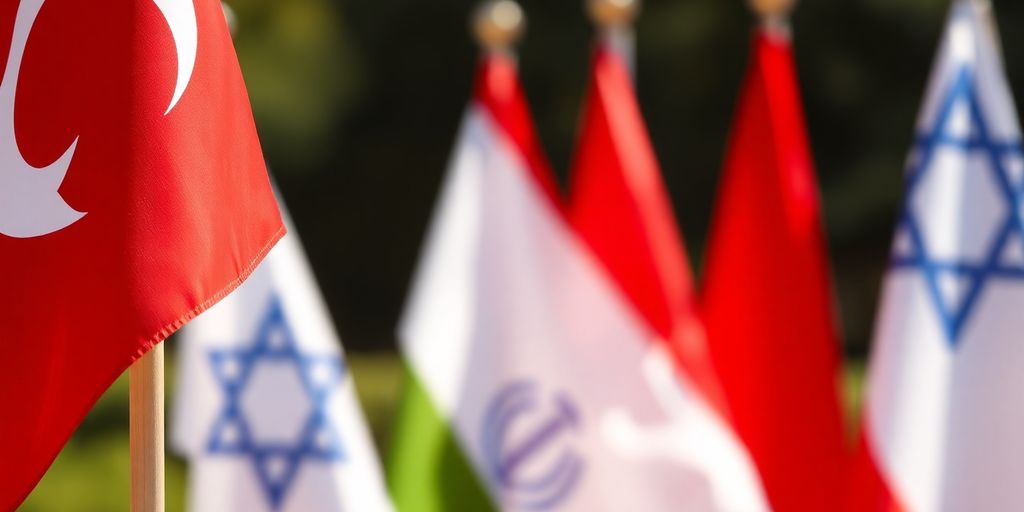Turkey has emerged as a pivotal player in the escalating Israel-Iran conflict, navigating a complex diplomatic tightrope. Ankara has offered mediation, issued stern warnings against a wider regional war, and taken proactive measures to safeguard its own interests amidst the heightened tensions. The nation’s strategic location and historical ties position it uniquely to influence de-escalation efforts.
Turkey’s Diplomatic Offensive and Mediation Efforts
Turkish President Recep Tayyip Erdogan has been at the forefront of diplomatic efforts, engaging with key regional and international leaders. His primary message has been a strong warning against a "devastating war" that could trigger a massive refugee crisis and destabilize the entire Middle East. Erdogan has emphasized that Israel’s actions risk dragging the region into a broader conflict.
- Calls for De-escalation: Erdogan has urged "urgent action" to prevent the conflict from engulfing the Middle East, stressing that the "spiral of violence" has caused irreparable damage.
- Mediation Offers: Turkey has offered to mediate between the United States and Iran on nuclear negotiations, with President Erdogan even suggesting Istanbul as a potential host city for such talks. This proposal was reportedly met with a positive, albeit cautious, response from former US President Donald Trump.
- Condemnation of Israeli Actions: Erdogan has condemned Israel’s strikes on Iran, calling them a "blatant violation of international law" and a threat to regional peace. He has also asserted that Israel is the "main threat to stability and security in the region."
Regional Impact and Turkey’s Preparedness
The escalating conflict has significant implications for regional stability, and Turkey is taking steps to mitigate potential fallout.
- Refugee Concerns: Turkey, already hosting millions of Syrian refugees and Iranians seeking refuge, is acutely aware of the potential for a new wave of irregular migration if the conflict intensifies.
- Energy Security: Despite the tensions, Turkey expects stable natural gas supplies from Iran, although it anticipates higher energy costs. Turkish officials have stated there are no immediate supply risks.
- Military Readiness: Turkey has increased its missile production capabilities to establish deterrence and has placed its military units on high alert. This includes scrambling F-16 fighter jets in response to brief Israeli airspace violations, which were reportedly unintentional.
- Intelligence Sharing: As a NATO member, Turkey reportedly received advance intelligence on Israeli operations through the Kurecik radar base, allowing for swift security precautions.
Challenges and Perspectives
Despite Turkey’s active role, several challenges persist:
- Limited Support for Iran: Many Muslim-majority countries, including Turkey, have offered only diplomatic support to Iran, largely due to concerns about Iran’s alleged support for various militant groups and the Shia-Sunni divide in the region.
- Unpredictable Dynamics: The volatile nature of the conflict and the unpredictable foreign policy stances of key players, particularly the US, add complexity to Turkey’s mediation efforts.
Turkey’s multifaceted approach, combining diplomatic warnings, mediation offers, and enhanced military preparedness, underscores its determination to protect its interests and promote regional stability amidst the escalating Israel-Iran tensions.
Sources
- Risks outweigh opportunity for Turkey as Israel-Iran conflict escalates, AL-Monitor.
- Israel violates Turkish airspace during airstrikes on Iran, prompting response, Türkiye Today.
- Turkey’s Erdogan warns against ‘devastating’ Israel-Iran war, The Economic Times.
- Turkey calls for urgent action to prevent growing Iran-Israel conflict | World News, Hindustan Times.
- Muslim countries across the world are not supporting Iran due to .., Turkey and Saudi Arabia have only…,
Pakistan has…, India.Com.






